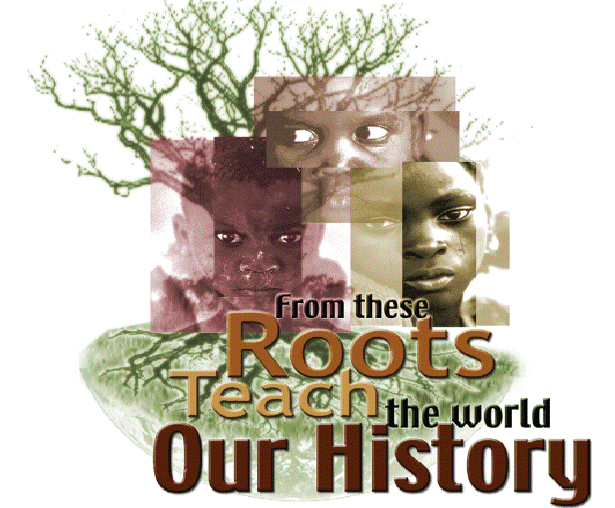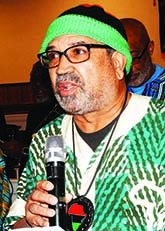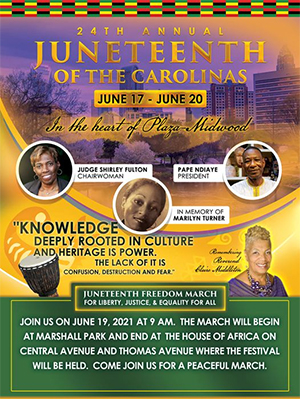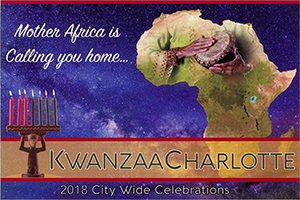
What Juneteenth Is and Isn’t

By Makheru Bradley

156 Years since June 19, 1865
The story of Juneteenth, the celebrated end of Chattel Slavery in the United States, begins on the continent of Afrika in 1441. A dozen Berbers were captured by Portuguese sailors near Mauritania and subsequently exchanged for ten enslaved Afrikans. Those Afrikans were transported to Portugal where they were given to Pope Martin V by Prince Henry. That event led to the papal bulls of 1452 and 1455 issued by Pope Nicolas V, which granted Portugal the right to enslave Afrikans. Thus began the trans-Atlantic enslavement process.
The “Disaster of 1492”–the European invasion of the Caribbean led by Columbus–eventually resulted in the deaths of 56 million Indigenous People in the Caribbean and the Americas by 1600. This massive loss of Indigenous People drove Europeans to forcibly migrate Afrikan people across the Atlantic for enslavement.
The establishment of the British colony of Virginia led to the enslavement of a group of Afrikans known as the “20 and Odd” in August 1619.
Celebrate and Emulate
Juneteenth is first and foremost a celebration of the heroic struggle of Afrikan people against Chattel Slavery. The 20 and Odd were not even the first Afrikans of the enslavement era to arrive in what is now the United States. “The first slave revolt in continental North America was in South Carolina in 1526. Lucas Vasquez de Ayllon, a Spanish colonizer founded a town near the Pee Dee River. This settlement consisted of 500 Spaniards and 100 enslaved Africans. Illness soon hit the settlement and Ayllon died. The South Carolina Indians became hostile to the settlement, and in November the enslaved Africans revolted, killing most of their Spanish masters, and escaped to the Indians. The surviving 150 (Spaniards) returned to Haiti in December, 1526” (Time For An Awakening Media).
The struggle against Chattel Slavery was fought in various forms by both unknown and iconic figures including: The Stono Rebellion; Colonel Tye’s guerilla war in New Jersey; the legal actions of Elizabeth “Mum Bett” Freeman and Dred and Harriet Scott; David Walker’s Appeal; the rebellions of the Prosser Brothers, Charles Deslondes, Bob Ferebee, Denmark Vesey and Gullah Jack Pritchard, and Nat Turner; Harriet Tubman, John Parker and the Underground Railroad; speeches by Maria Stewart, Henry Highland Garnet, Frederick Douglass, and Sojourner Truth and countless acts of defiance, resistance, and escape.
This rebellious activity forced the American power structure to enact Fugitive Slave Laws in 1787, 1793, and 1850, along with numerous Black Codes as Afrikans continued to liberate themselves. America would eventually be forced into a civil war to resolve the issue of Chattel Slavery.
Nearly 210,000 Afrikans would fight for their freedom in the American Civil War, including Dr. Martin R. Delany and Lewis Douglass, the son of Frederick. The “General” Harriet Tubman would help plan and lead the Combahee River Raid–accompanied by 150 Black soldiers–resulting in freeing an estimated 700-800 enslaved Afrikans in South Carolina.
This is what we celebrate at Juneteenth. It is this spirit of tenacious struggle that we must absorb and emulate in 2021, because as Dr. John Henrik Clarke said: “All history is a current event.”
Juneteenth is not a Black Independence Day
In a futile attempt to assimilate, the dominated often adopt or imitate the culture of their oppressors, including definitions of themselves and their events. Such is the case with Juneteenth which is often described as Black Independence Day.
Any comparison between July 4th and Juneteenth is a terrible historically flawed analogy. July 4th is a celebration of the victory of one group of genocidal land thieving enslavers over another. They have independence 245 years later because they have the power to hold what they stole.
Juneteenth is a celebration of the heroic struggle of our ancestors against their enslavers–156 years later that struggle continues. While the structures of white supremacy, such as Chattel Slavery, have been torn down, the foundation remains intact. Thus, other structures of white supremacy, such as American Apartheid and the New Jim Crow have been built on the same foundation as Chattel Slavery–the disempowerment, oppression and exploitation of Afrikan people.
Afrikans in the United States have experienced various forms of quasi-emancipation, which are continuously under attack (voting rights e.g.). True independence is the reality of total liberation and empowerment–the restoration of Afrikan people to our pre-slavery state of free, proud, and productive people, at the bare minimum. That process requires reparations.
All commemorations must lead to transformation
Juneteenth 2021 comes 100 years after white supremacists attacked and destroyed the Black community in Tulsa, OK. Afrikan people rebuilt that community only to have it attacked again by legal maneuvers such as urban removal (misnamed renewal). These attacks and others on Black communities that had achieved high levels of economic development were/are an indication of the Black-White power imbalance in the United States.
In the spirit of our Esteemed Ancestor Dr. Amos N. Wilson, all commemorations must lead to transformation of our consciousness and of the power relations on this planet. False definitions and narratives hinder this process. We must become more original and creative in defining who we are, what we have done, and can do. Juneteenth must be viewed as part of the Afrikan struggle for liberation and empowerment. That is a worthy celebration.
For more from the author, follow his blog Makheru Speaks.



